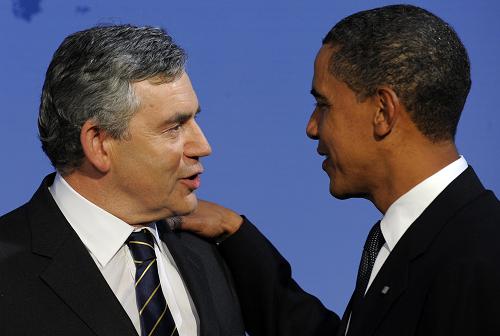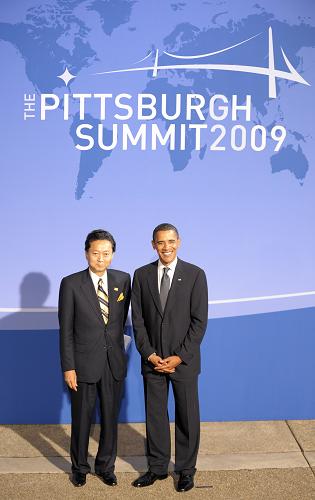G20 leaders gather in Pittsburgh
Leaders from the Group of 20 (G20) are gathering in Pittsburgh, Pennsylvania, on Thursday and Friday to discuss ways to tackle the global financial crisis and expedite global economic recovery.
US President Barack Obama arrived?in Pittsburgh?Thursday afternoon, to join other G20 leaders at the two-day summit, the third of its kind since the outbreak of the crisis last year.
"In Pittsburgh, we will work with the world's largest economies to chart a course for growth that is balanced and sustained," Obama said in his speech at the UN General Assembly on Wednesday.
In his weekly radio address on Saturday, Obama said that at the summit, world leaders would have "a five-month checkup to review the steps each nation has taken -- separately and together -- to break the back of this economic crisis," since the London summit in April.
The leaders would discuss some of the steps that are needed to safeguard the global financial system and close gaps in regulation around the world, he said.
Before heading for the summit, Russian President Dimitry Medvedev asked the G20 to come "more quickly" to an agreement on the reform of the global financial system.
The global economy was slowly emerging from the crisis, but "future difficulties may lie ahead," Medvedev warned last week during his visit to Europe.

Brazilian President Luiz Inacio Lula da Silva, the head of Latin America's biggest economy, has called for a stronger voice for developing countries in steering the world economy.
During a speech at the United Nations Wednesday, Lula said that if richer countries such as the United States want the developing world's help in sorting out the financial crisis, then those nations are going to have to cede some of their controlling stake in the institutions devoted to the task, such as the International Monetary Fund.
Indian Prime Minister Manmohan Singh has said he would seek greater voice for developing countries in international financial institutions at the summit. In his departure statement earlier this week, Singh said the world economy is not "out of the woods" yet and that it is necessary for his country to engage in the management of the world economy.
India would like to see a strong message to emerge from Pittsburgh against protectionism in all its forms, whether trade in goods, services, investment or financial flows, he said.
European Commission President Jose Manuel Barroso, World Bank Group President Robert Zoellick and International Monetary Fund's (IMF) Managing Director Dominique Strauss-Kahn, among others, have also arrived in Pittsburgh for the summit.
To coordinate its 27 members' stance, the European Union earlier this month hammered out the bloc's common positions for the Pittsburgh summit. Main elements of the common positions concern fiscal stimulus, bankers' bonuses, climate financing, global trade and reform of the governance systems of international financial institutions.
"We see signs of recovery, but many are still being left behind," Zoellick said on Sept. 16.

He said "the G20 Summit in London broke the fall and now we need to go further, bringing in those that are being left behind in building a new normal based on multiple poles of growth. That means recognizing the developing countries as part of this solution."
Strauss-Kahn said in New York on Wednesday that financial conditions have improved and the growth engine seems to be starting up again. The IMF is now forecasting a global recovery in the first part of 2010.
"But even if growth recovers, it might still take some time for employment to follow. Unemployment might very well continue rising next year, even as the economy bounces back," he said.
The IMF has proposed its suggestions for the post crisis policies to the G20 leaders, including the suggestion of exit strategy from the stimulus policy and the international financial reform.
The G20, which represents 85 percent of the world economy and two thirds of the global population, is scheduled to meet on Sept.24-25 for its third round summit after Washington and London in last November and this April respectively.
On Thursday afternoon, a group of protestors took to the street in Pittsburg, but were dispersed by police. Police said the march did not have a city permit and therefore had been declared as an unlawful assembly.
 0
0 






